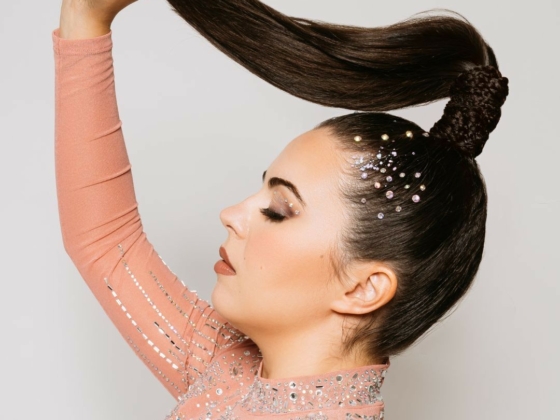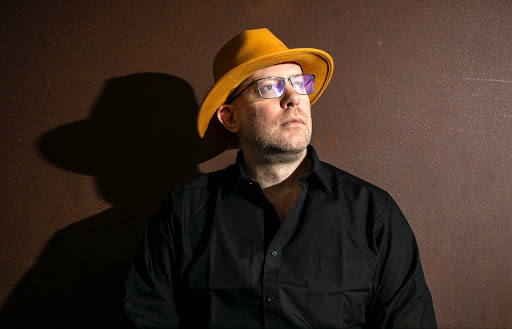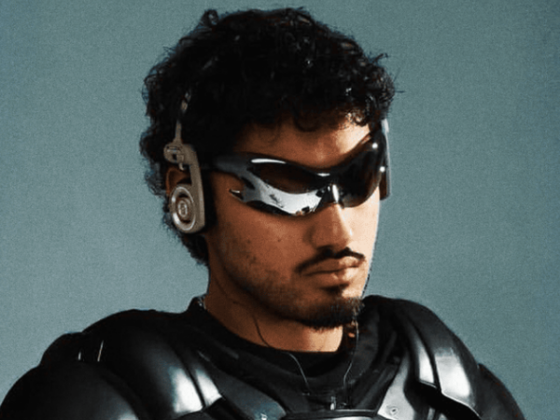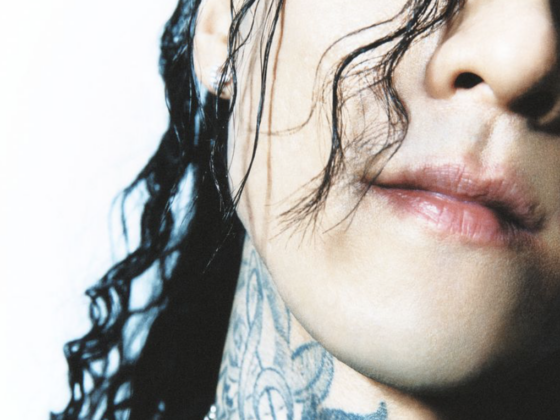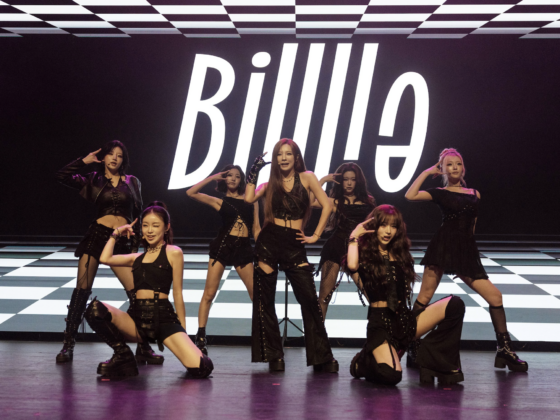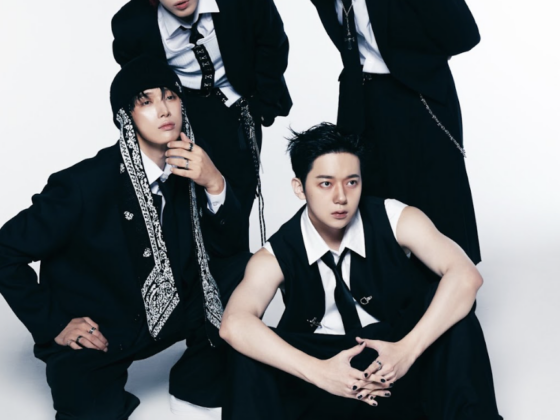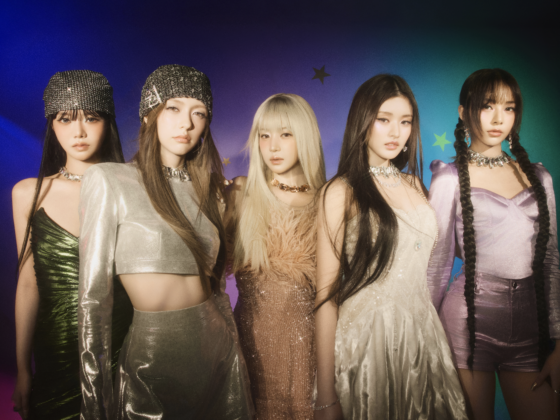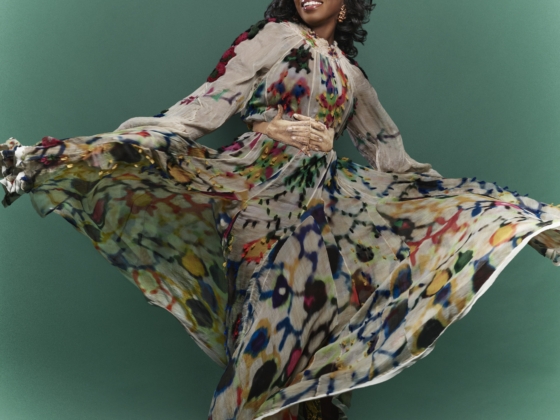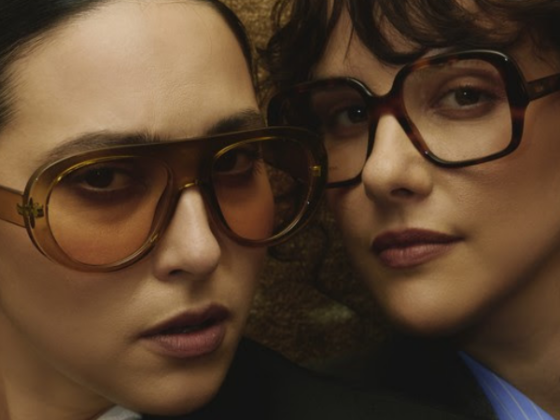Grammy-nominated songwriter and one of India’s top female rappers RAJA KUMARI is the South Asian icon that music needs. An artist who channelled her own doubts and struggles to create a cathartic and comforting sonic world, her new album The Bridge, spans various emotions and mindsets effortlessly.
The album which also marks her debut album under her own label Godmother Records comes to life as a dynamic nine-track collection founded on a crux of evolution, transporting us through the awe-inspiring transition of who Raja Kumari was to who she is on the path to becoming.
In conversation with Earmilk, RAJA KUMARI delves into the inspiration behind her album and how the project helped the merging of her sonic identity with her birth identity, the experience of her viral appearance at this year’s Coachella and her hopes for further South Asian representation in music, among so much more.
What is the message/inspiration behind The Bridge? How will this album stand out from your previous releases in your own opinion?
The message and inspiration behind THE BRIDGE for me, is evolution. It’s about acceptance and integration. I made this during the pandemic so that it actually chronicles the different emotions that I was able to bring to light during this time of reflection, so it starts in a place where maybe fear may have dominated some of my mindsets and towards the end it concludes with the song “Fearless,” which I think is a liberation from some of the self-inflicted turmoil I put myself in. So I really feel like the message behind this album is about bridging the gap between your old self and your new self and really honouring that journey.
Your music is a blend of Eastern and Western sounds. What’s the biggest challenge of crafting and honing such a sound?
The challenge is to make it feel authentic. I think when someone does an Indian fusion, it’s really easy to just pick up a sitar or tumbi and put in those beats that people know. Obviously, that’s something that we would want to do as fusion artists, to introduce the West to different Indian sounds, but for me, the fusion really comes from a very deep place. By being a classical dancer basically at birth and growing up in that kind of environment, I just feel like music has a very spiritual and very rooted space in my life. So, whenever I’m doing fusion, I don’t just pick the instruments because they’re Indian, I try to choose instruments that complement each other and set the mood. Like if the song is nostalgic, there’d definitely be an Indian instrument because my childhood is very much immersed in classical music. But the 808 is my years of high school and really finding myself and my identity, so I think I just pull from my biggest inspirations which is growing up around West Coast hip-hop and then, obviously having the influence of classical music and I think that they both kind of match with each other and they interlock within different rhythmic ways. For me, it’s just about creating something new that is the most beautiful version of music to myself. I’m just making what I think is beautiful and I hope people relate to that.
You mention how you were drowning in doubts and fears when you started making this record, how did the creation process for the album help you overcome these personal difficulties? And how does your birth name/identity and your musical identity find a shared space across this album?
Wow, that’s a really good question. The creation process is cathartic in its own ways. We have all these fears and these doubts inside of our mind but the second, we put them on the microphone we make them immortal, we can project the strength that maybe we’re not feeling in that moment. I think it’s really easy for your higher self to speak through the music and I always kind of say that my music is prophetic. For example, sometimes I don’t feel the way I’m saying in that song but I know that I want to feel that way and through that music, I somehow empower and activate that kind of progress in my life. My birth name identity versus my musical identity, you know, through this process, I truly realize that Raja Kumari was a defense mechanism, it was a protector that I had created to protect “Svetha” (birth name) and I think through the process of this album, I started to realize that my true self deserved to also see the light of day and that she was strong also and didn’t need to be a warrior princess in order to fight this world. She was somebody who was authentic and true and honest and was seeking balance and was also someone important. So I think that everyone has to go through their inner child healing. And I do believe this album is a really big part of my inner child healing.
Sonically, how would you say you evolved in this album and where do you see your artistry going from here?
Sonically, I do believe this album has the most evolution. Like, I think the first question was like, “Why would this album stand out?” You know, I think I just unapologetically and very courageously made pop music. When I realized I wanted to be an artist I saw quickly it was going to cost way too much and it wasn’t something I could do easily by myself and I needed to make connections. So I had to be willing to write songs and learn and do demos just to be in the room with these producers. With this album finally releasing one of those pop songs that I would think was so great that maybe Rihanna should sing it or Christina Aguilera.. It’s like… no … Svetha Rao was going to sing this song, Raja Kumari was going to sing this song, you know? And I think that courageousness, that fearlessness is shown in the song “Fearless.” I think that really marks how this album is different. The progression for my music in the future is just to make huge records and not be limited by what I think my identity means and what people want to hear from me. To not only speak on certain ideas about identity and culture and being a human being and speak about things that connect us across the board. You know, anybody from any culture, I think we all have that feeling of working hard towards something so wholeheartedly, so purely, and I think that that’s what “Fearless,” is about. It’s about not regretting anything, not regretting one part of the journey and just being grateful to be in the place that I am today and be present and living in a dream that I dreamt many years ago when I started this journey.
As hard as it is to pick, do you have a personal favourite track on the album and why?
Wow, I speak a lot about “Fearless.” I think that because, it’s like a song that really is different than everything else. But I think the song, “No Nazar,” is a really powerful song for me because I wrote it almost like a protection spell. When I wrote the song, I definitely did not feel protected. I felt really exposed and vulnerable to attack. I was going through a lot with changing friend groups and realising the toxic people in my life and energy vampires and the ways in which I was hurting myself by giving way too much. I come from a culture where evil eye, “No Nazar,” it’s really important that after every performance, my mom would always remove my nazar, which means she would remove the evil eye that people may have accidentally cast on me during my performance. So I think when I was so far away from my mom and I’m on the other side of the world doing all these things that I’m dealing with all these eyes on me, I wrote the song almost to be like a protection spell. Whenever I feel unprotected, I listen to that song and I just immediately feel powerful.
You’ve always been someone who broke barriers with your music. What’s something you’ve yet to experiment with in your music that you’d love to try out some time?
I think language. I really believe that I spent so much time in India and I was always making music in English. Though my music is a fusion with classical sounds, classical concepts and theory inside the music, I think I haven’t really experimented enough with Indian language. Hindi is a language I learned in college, it’s not something we speak at home but I can read and write in it and I lived in Bombay for many years, so I do believe that Hindi is something I want to sing in but Telugu is my native tongue. That is what my family speaks at home and I’ve always grown up around Telugu music. This year, we saw a Telugu song win an Oscar and it just encouraged me to try to experiment whether it’s a project or just a few collaborations, but I definitely want to be singing in Indian languages…and maybe even in Spanish.
You are well known as being one of the top female Indian rappers, besides that what part of your identity within or outside of music are you most proud of?
I’m a nerd. I love history. I’m obsessed. After I have a huge concert, I spend like three days decompressing by watching ancient history about the Antediluvian era. I know that was a very large thing to say but, I’m very obsessed with the culture, pre-flood and I studied religious studies in college and I don’t know… There’s something so interesting and exciting and I just love kind of cracking the code and trying to understand what kind of society has been forgotten. So, I guess I’m most proud of my love for culture and history and just my insatiable appetite to figure out the truth.
You made a viral appearance at Coachella with Ali Sethi. Quick! – what was that experience like in three words?
Historic. Joy and community.
Just to be a part of what happened this year. To join Ali onstage with all the other incredible South-Asian artists that were booked at Coachella this year, it encouraged me and showed me that I’m on the right path and these types of platforms are available to me and I’m just around the corner .
As a very inspirational representation for South Asian talent in music, what’s next for South Asians in music? Is the world more open to our music now and what’s brought on that change in your opinion?
It’s an amazing time to be alive. It’s an amazing time to be a musician. I think there’s been so many artists that have led the way, paved the way and opened doors for all of us to have this moment that we’re having now. I’m so thankful that we are all reaching back and honouring those that came before us. The world is definitely more open to music from all over the world. I think the pandemic changed a lot of things. People became global music connoisseurs, not just focused on their own region; you had to get your entertainment from around the world. I do believe with all the accolades, the acknowledgements and the open doors, that we’re going have more and more representation. So many people have been sowing the seeds, from Panjabi MC to Jay Sean to Raghav to Charli XCX. There’s so many amazing people, even my contemporaries that had been working for many years like Anik Khan, Joy Crookes, Priya Ragu, Sid Sriram…I can just keep going and the fact that I can keep listing artists, is such a beautiful sign of the times. It’s not just one or two that are supposed to represent all of us … there’s room for all of us to represent exactly our part of our culture.
Having gotten to a point where you’re learning to love yourself and discovering more about yourself, what’s one piece of advice you’d have given your younger self?
I’m just proud of my younger self. The perseverance comes from that moment, that belief and optimism and I would just say, “Don’t lost that.” “We never lose that!” That’s what I would tell to my younger self. The advice I’d give to my younger self is ‘don’t expect this to be overnight. When something is really built well, it takes time and your relationship with music is going to be a lifelong relationship. And don’t be in a rush.’ That is what I would say, but actually, I wouldn’t change a thing, so I couldn’t give them advice to change the way.
What’s the most precious or memorable fan interaction or comment you can think of off the top of your head?
Honestly, every time I see my fans, when I’m in places I don’t expect to meet them like when I was at Coachella and I was just part of the crowd, enjoying and experiencing Diljit, and I heard some people say my name and I went over and they were Telugu and they were so happy to meet me and they had the most beautiful things to say. I just told them the album was coming and I think meeting fans in America is a really different experience for me because I spent so many years in India, I understand that the work that I’ve done there would have people know me. I was on television and I did a lot of high-profile things and it’s been really beautiful journey. Yet, in America, I feel like I’m just on Instagram and I’m like a piece of a mood board in some ways, but to really meet people and see the impact of the music, it’s so encouraging and this album, this homecoming and coming back to America and really focusing on getting the music to be global and meeting my fans in America really means a lot to me.
You’re finding your space in music on your own terms, what’s the most enjoyable part of the experience and what’s most challenging?
The most enjoyable part is putting out exactly the music that I want to put out and exactly how I want do it and how I see it. No limits. The most challenging is being an independent musician. I’ve had seven years in the major label circuit, so I know it’s like when a major label puts their strong arm behind you and pushes the button. And as an independent artist you want to push that button for yourself. I think it’s really a struggle to constantly tell myself that I’m one person and I’m making my music with good intention and people will find it when they’re supposed to. I guess that would be the most challenging, is wanting the music to go so far and sometimes being disappointed and that I’m not one of the largest major labels in the world and that I need to do it at my own pace.
What’s been the most surreal moment of your career so far and what’s on your bucket list?
I’ve had many surreal moments. I can’t choose one. I want to say…John Legend, A.R. Rahman, the billboard in Time Square! All of it! I think putting out this album feels really surreal. It was being made for many years. I left the label in the middle of it, I didn’t know if this album would come out, we were in a pandemic, we didn’t know if there would be crowds again. I think the fact that this has finally seen the light of day, it’s so surreal because it was such a labor of love and it was so honest, so real and so cathartic. It’s also surreal to be a label owner. I think when I put out my first EP, I made the label and rushed it but this is a real project that we, my team of about four people all worked on together. There’s four in the core team and then my management, and in India my team over there so, this is a surreal moment to be a label-head, completely independent, owning my own masters and releasing music that I always dreamed of releasing.
Finally, what’s one question no one has asked you so far that you wish you were asked?
People tend to think I’m so strong and they’ve seen me as this very indomitable warrior-like, goddess character and I think as I’ve evolved and understood that to be almost like a mask and a protection, I just wish people would get to know me more as a human and understood my intention behind my music and why I do what I do and my love for my community. Maybe people think I’m intimidating and I have an ego, but it’s really out of the pursuit of excellence for us all. I hope I can make more meaningful connections with friends and really find my tribe.


